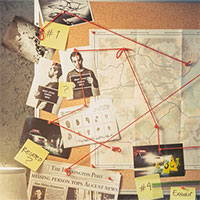Ecosystems on Earth are extremely miraculous when they have a balance and adapt themselves to the environment. Regardless of species, it also contributes to the natural ecological chain and plays a certain important role in the whole process. From tiny microorganisms to giants like elephants, from aquatic creatures like shrimp and fish to birds flying in the sky, from carnivores like tigers to plants, everything Everyone has a reason to exist.
Humans are also a creature on Earth and unfortunately we are the rulers, at the top of the food chain. However, the role of humans with the earth is still quite obscure. Humanity is at the top of the ecosystem, so is it our role to protect the lower species? But look at what humans are doing to mother earth.
Research shows that 7.6 billion humans represent only 0.01% of all life in species and cover 86% of land, yet we have destroyed 83% of wildlife and 50% of wildlife. plants since the formation of human civilization. Over the past 50 years, about half of the animals on earth have died from direct or indirect human causes. Worse, 300 years of fishing left the oceans with only one-fifth of mammals.

Humans have killed most of the creatures both on land and in the water.

Many species of creatures today are actually farmed by humans, not wild animals.

Despite being at the top of the food chain and using 86% of the land area, humans account for only 0.01% of the total species.
In fact, bacteria is the most common form of living organism in the world with 13% while plants make up 82% of life on earth. All creatures from fish to animals account for only 5%.
If compared in terms of numbers, fungi are even 200 times more numerous than humans, bacteria are 1,200 times more numerous, and plants are 7,500 times more numerous.
It is quite interesting that despite slaughtering most of the creatures on earth, human husbandry is contributing the majority of numbers for some species. About 70% of the world’s bird species today belong to livestock farms, about 60% of mammals today are grazed by humans.
However, it is the development of the livestock industry that is destroying nature, leading to the 6th risk of human extinction.

The number of other species is many times greater than that of humans.

Between 1990 and 2015, almost half of the 177 mammal species lost numbers by more than 80%.

The living area of the African tiger before and now.
This ice age caused a serious drop in sea level by more than 100m due to the formation of ice blocks, causing 60-70% of organisms, mainly still living in the water during this period, to become extinct. Then, the disintegration of the ice sheets began to form oxygen and the birth of new species.
A series of climate changes caused a lot of life in shallow seas to die. In fact, creatures of this period began to come ashore and lived mainly in these shallow seas, so about 70% of the world’s organisms were destroyed, including the coral reefs that are very common. at that time.
The eruption of Siberian volcanoes causes the earth’s climate to warm, killing more than 95% of the world’s organisms.
A quarter of organisms were wiped out by a series of eruptions and earthquakes, clearing the way for the formation of the age of the dinosaurs.
The cause is unknown, but many theories suggest that a meteor explosion took place in present-day Mexico, along with a series of other volcanic eruptions that wiped out the dinosaurs and many other animals, clearing the way. for mammals, including humans, to rule the earth.

